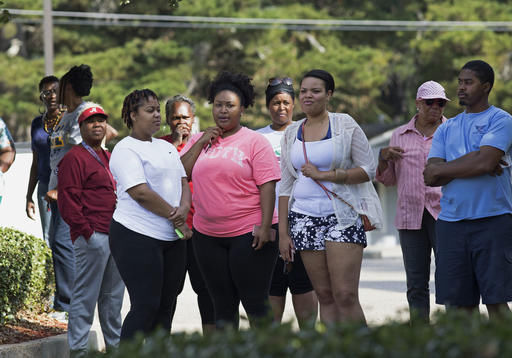

JACKSON, Mississippi (AP) — Black students in Mississippi are much more likely to be taught by rookie teachers, and black males are suspended at the second-highest rates in the country.
Those are among the findings of a U.S. Department of Education report on racial disparities in education released Friday.
Neither finding is much of a surprise in Mississippi, where many districts with largely black student bodies scramble for teachers each year and where litigation has focused on harsh disciplinary practices in Jackson and Meridian.
The report collected numbers from the 2011-2012 school year, covering prekindergarten through 12th grade.
Research nationwide has shown that most teachers become more effective after their first year.
In Mississippi, 7 percent of black students attended a school where more than 20 percent of teachers are in their first year, compared to 1 percent of white students.
Nationwide 4 percent of black students attended such schools, while 2 percent of white students do.
Some other states have higher rates of black students attending rookie-heavy schools, but Mississippi’s 7-to-1 ratio among black and white students was exceeded only by Maryland’s with a 9-to-1 ratio.
State government has tried to address the lack of veteran teachers in Mississippi, offering incentives in 48 districts designated as teacher shortage areas. But many of those districts, which are mostly rural with mostly black student bodies, rely on first-year teachers. Nationwide, many first-year teachers drop out of the profession, meaning more new teachers have to be hired the next year.
“If you’re in one of those schools that has lots of vacancies, you can be in a very vicious cycle,” said Rachel Canter, executive director of education group Mississippi First.
Civil rights activists say that despite legal actions, they fear suspensions are still harming the academic careers of African-American boys.
“It’s our opinion that a child in the classroom is far more productive as an adult than a child who’s been kicked out of the classroom for childlike behavior,” said Derrick Johnson, president of the Mississippi chapter of the NAACP.
Mississippi had the second highest rate of suspension for black male students and the second-highest gap between the rate of suspension for black and white male students, both behind West Virginia.
The report showed that 27 percent of black male students were suspended from school at least once, compared to 7 percent for white males — a disparity of 20 percentage points. Nationally, the black-white gap was 14 percentage points.
Johnson’s group helped spark a U.S. Justice Department lawsuit against the Meridian schools because of the frequent arrest of students, making juvenile offenses out of many nonviolent school infractions. The district there agreed to reform its discipline system after it was sued.
The picture is much different among female students in the state, though. Mississippi school districts suspended 11 percent of black female students at least once, just below the national average of 12 percent. Of white female students, 3 percent had been suspended at least once, just above the national average of 2 percent. That meant the 8-percentage point disparity was less than the national gap of 10 points.



